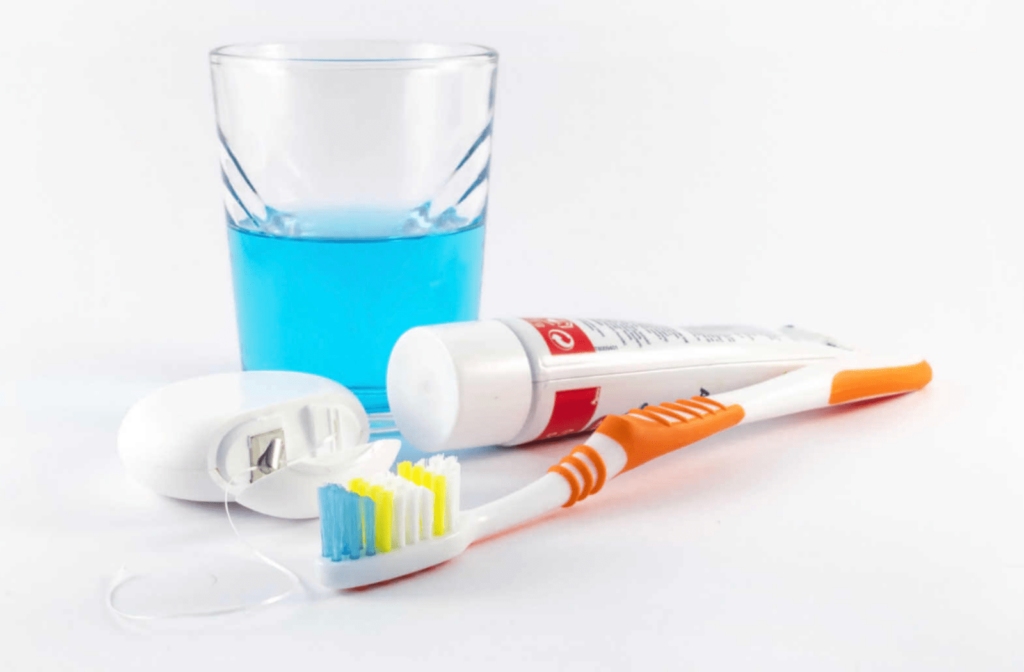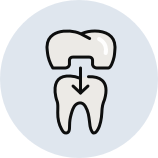As we age, our teeth inevitably become more fragile, and we tend to lose them, leaving us with a potentially less aesthetically pleasing smile and reduced function. But there’s good news! With modern dentistry advancements, there are now numerous options to replace lost teeth, including implants and dentures.
Just like natural teeth, dentures require proper care and maintenance to keep them clean and reduce discoloration and bad odours. Clean your dentures every day by removing them before bed and soaking them in a special cleaning solution overnight.
What Are The Main Types of Dentures?
Dentures are removable false teeth that can replace several or all of your natural teeth. They’re customised to match your other teeth’s shape and colour, producing a similar appearance. While they’re generally considered cosmetic, they can fill gaps that otherwise might cause your teeth to get out of line.
Dentures can either be partial or full, depending on how many teeth they’re replacing, but the Canadian Dental Association recognizes 4 main types of dentures:
- Partial dentures: Also known as removable partial dentures, they’re often used to replace one or several missing teeth. The denture is fixed in its space using metal clasps that attach to the neighbouring healthy teeth, allowing you to take the false teeth out yourself for cleaning at night.
- Complete dentures: A complete denture is designed for patients missing all their teeth. This type of denture is customised for your unique mouth structure and shape, held in place by suction or denture adhesive. Your dentist may recommend temporary immediate dentures if your gums need to heal after extraction.
- Fixed bridge dentures: A fixed bridge, also known as a fixed partial denture, is made of two or more crowns fitted on the teeth on either side of the gap. This type of denture can be used when one or a few teeth are missing, but you can’t take this bridge out by yourself.
- Implant-supported dentures: Dental implants are artificial teeth roots surgically attached to the jawbone using durable titanium screws. The implants fuse with the bone and can provide a sturdy base for a partial denture or crown.
Whatever type of denture you have, they offer a range of benefits, such as:
- Improved chewing, leading to better nutrition
- Improving speaking abilities
- A natural-looking smile
- Reduction of possible muscle and bone shrinkage in the jaw

Caring for Your Dentures
Partial and complete dentures are both removable, so you’ll need to take them out and clean them regularly. Not only does keeping your dentures clean support your overall oral health, but it can also help your appliance last longer. Taking your dentures out can also give your gums a chance to rest.
To keep your dentures in good condition, you should:
- Rinse your dentures with warm water thoroughly after eating. This can help prevent food particles from sticking to your dentures and causing problems later on.
- Brush your dentures with a soft-bristled toothbrush and a mild denture cleaner. Avoid bleach or abrasive cleaners that can cause scratches or discoloration on the surface of your dentures. Use warm water to help keep the bristles soft and gentle.
- Soak your dentures in a specialised cleaning solution overnight to help loosen stubborn stains or bacteria. You could also use a mix of warm water and vinegar, though avoid vinegar if your denture has metal clasps. If there’s ever any doubt, your dentist can offer recommendations.
- Remember to brush your gums, tongue, and the top of your mouth with a soft-bristled brush to help improve circulation and stimulate oral tissue. This can help prevent problems such as gum disease.
- Handle your dentures with care to help avoid damage or breakage. Be sure to store them in clean, lukewarm water when not in use and don’t let them dry out. Visit your dentist if you need your dentures adjusted, and definitely don’t try to “fix” them yourself!
How Long Can Dentures Last?
If you go to all to work on getting dentures fitted and aligned, it only makes sense you’d want them to last for a while. Unfortunately, there is no uniform answer to denture’s lifespan since there are various types of dentures, and their longevity can depend on many factors.
The average lifespan of dentures is about 7–10 years, but it depends on the type of denture you have and how well you care for them. Your dentist will need to evaluate your dentures regularly, and if they notice any significant wear or damage, they may advise you to replace them sooner. In general, around 5 years you should start considering replacing dentures.
How do you know it’s time to replace your dentures? Here are some signs:
- Significant wear and tear in the denture base or teeth
- Changes in the fit or feel of your dentures
- Pain or discomfort when wearing them
- Cracks or chips in the dentures
Enjoying Your Bright Smile
Clean dentures can help your smile shine bright while contributing to your overall oral health. Think of them as your natural teeth, just removable! Brush them with a soft brush and let them soak in denture cleanser overnight. With proper care, your dentures can join you on your adventures for years to come.
For any questions about caring for your dentures, Outdoor Dental is here to help! And if your dentures aren’t fitting like they should or it’s time for a replacement, book your appointment and let’s get you smiling comfortably.














